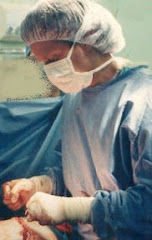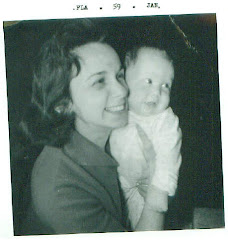-----------
It would be wonderful if everyone were nice to each other and had each other's best interest at heart. But the reality is, many people are out for themselves. Sometimes it is a personality issue, and sometimes it is the way the corporate structure is set up.
[Such is the reality of medicine.]
Our goal should be "lead and succeed". To do so you have to see the big picture and realize that a leader is only a leader when there are followers. You have to be above all the petty behaviors. Although difficult, it is critical for your future to learn how to deal with these kinds of behaviors.
All these behaviors come from ego. While some ego is important, having an inflated ego can hurt you.
Humility
If you do not have humility, as a leader it is something you must learn. Humility allows you to keep your ego in check and makes you think before you act.
Posturing and extreme one-upmanship
Have you ever worked with people who are obsessed with competing and making themselves look good? This is the definition of posturing in a nutshell. The person is constantly asking, "Who is the better one? Who can run the race the fastest?" Keep in mind that posturing is more than being competitive with others; it is a high level of "oneupping" another person. Posturing comes from a need to win and be known for winning. It may come from insecurity or jealousy of others. This behavior does not bode well for building relationships, nor does it reflect well on the person one-upping.
Sabotage
Unfortunately, there are people who will try to sabotage what we are doing to make themselves look and feel better. Sabotage is really a form of insecurity. There are so many clients who say, "I cannot seem to get my ideas known by anyone around me except my boss." Or "My boss takes credit for everything I do." Not giving or sharing credit is the behavior of a person who is sabotaging another person. The saboteur is trying to make the other person not look as smart as or as effective as he or she really is. What people don't realize is that by making someone look good, we make ourselves look good.
Sarcasm
Some people think sarcasm is funny and do not realize how much it hurts other people's feelings. There is always a hint of truth in sarcasm, which is what makes it hurtful. If you have something to say to someone, say it. Using sarcastic comments will only harm your edge and lessen respect others have for you. Keep in mind that sarcasm may be in your partially blind area. You may know that you use sarcasm, but you may not know the ramifications of it and what other people think and feel because of your sarcasm.
Some things to consider:
Some things to consider:
- Do not put other people down to make yourself look good.
- Raise your empathy level and always keep others' feelings in mind — increase your emotional intelligence.
- You may say that there are plenty of leaders who exhibit these personality blockers, and, yes, there are.
- Do people work because of you or in spite of you?
- If you have people who work for you, will they go the extra mile for you?
- Will they stay late?
- Will others take on an extra project just because you asked them to?
- Do not "one-up" people.
- Be collaborative.
- Listen — engagement does not mean having the best idea or best story to tell.
- Do not be the subject-matter expert on every topic.
- Do not try to one-up them — you will never win.
- Do not get off ended; it is their way of feeling important.
- Smile and say things like, "That's great," and keep the conversation going.
- Are you excited for people when they are successful?
- Do you let others take credit for work they produce even when they are not in the room
- Give people credit for their work.
- When someone else's idea is chosen over yours, congratulate him or her.
- Say nice things about other people and their work.
- Realize that when you sabotage other people's work, you will lose all respect from others.
- Take comfort in the fact that people always find out who really did the work.
- Try to include others on e-mails so that they are aware of your work.
- Do not speak badly about saboteurs. That will only hurt you—especially if they have any degree of influence.
- Try to get included in meetings where the work will be discussed.
- Speak up in meetings; do not fade into the background.
- When the saboteur tells about the work that "he" had done during a meeting, use statements like, "Yes, and what I'd like to add was that when I was working on the project, I found . . ."
- If appropriate, go to the saboteur and say, "I respect everything that you are doing. I would really like to be included in the reports so that others know what I am doing at the moment."
- Aren't you just a ray of sunshine.
- Did you take your medication today?
- Do I look like a people person?
- Not the brightest crayon in the box.
- Don't worry. I forgot your name, too!
- Nice perfume. Did you use the bottle?
- When it involves trying to get a laugh at someone else's expense, it is sarcasm — do not take part in it.
- If you have said something sarcastic, immediately apologize.
- When you have said something sarcastic to someone in front of other people, apologize publicly.
- Even if people tell you that your sarcasm is not hurtful, do not believe them. They are not sarcastic and do not want to hurt your feelings.
- Stop doing it and learn some real jokes if you are trying to be funny.
- Do not laugh when they make the joke; your laughter tells them it is all right to keep doing it.
- In private, say to them, "I know you may not realize it, but when you make those sarcastic jokes, they are hurtful. I know you would not want to hurt anyone's feelings, and so I wanted to let you know. If you are comfortable, say to them, "That's not really funny."






